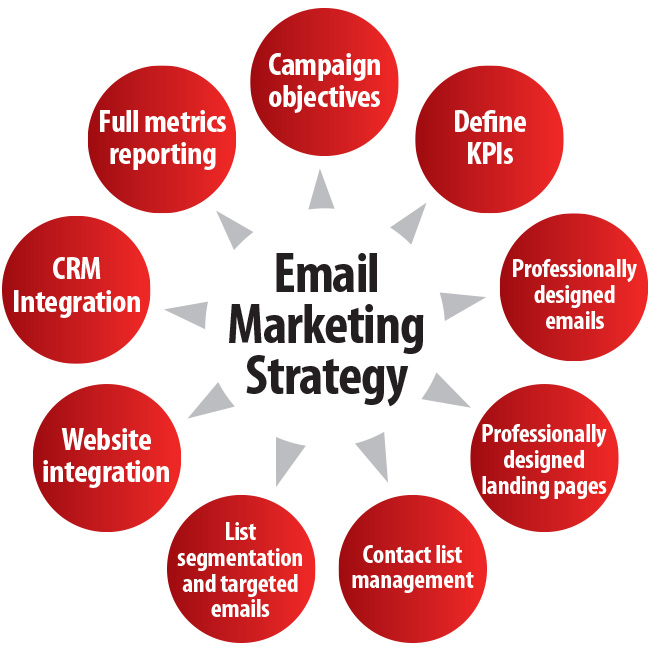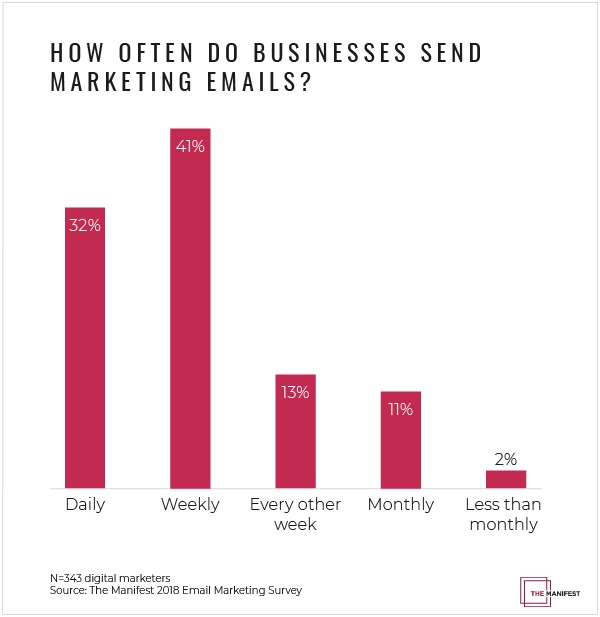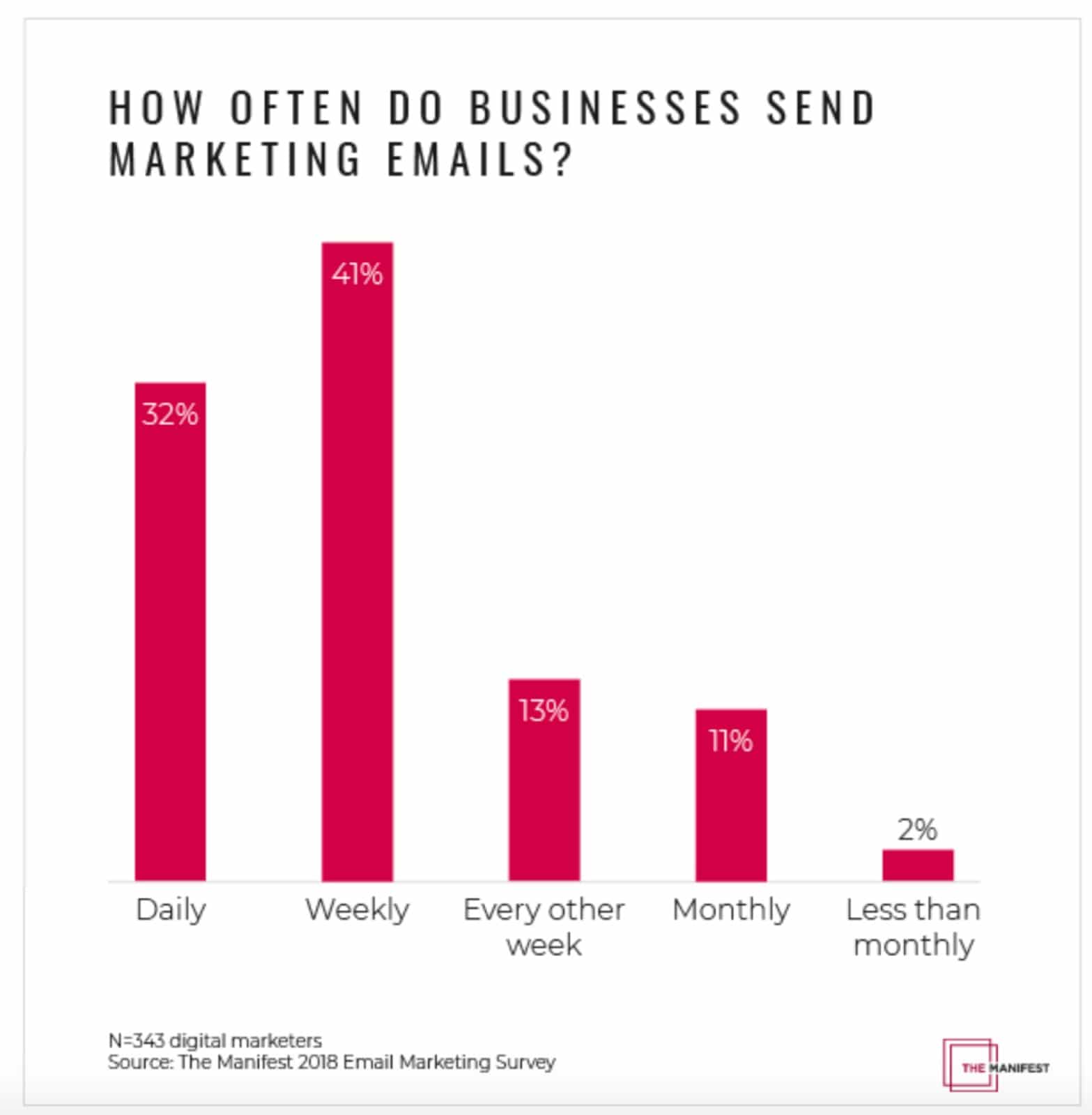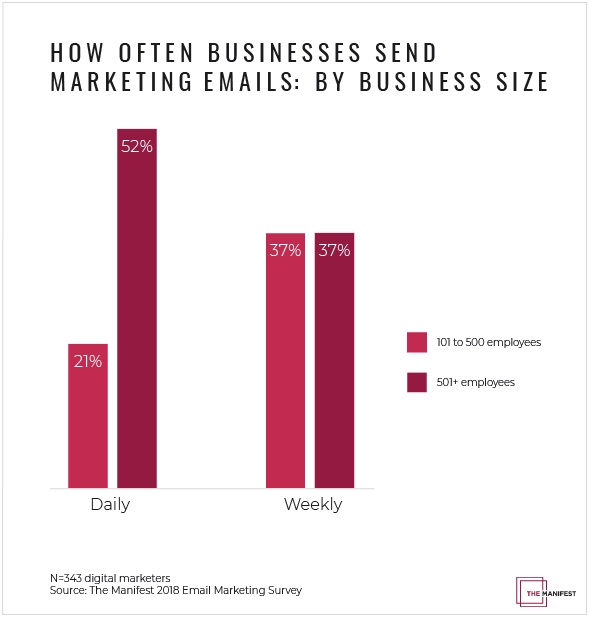Yes, you can send marketing emails to businesses. However, there are rules to follow.
Understanding these rules ensures your emails are effective and legal. Email marketing is a powerful tool for reaching other businesses. But, there are laws and best practices to consider. Following these guidelines helps you avoid fines and build trust. This blog post will explore what you need to know before hitting “send.
” You will learn about the legal landscape and how to craft emails that get results. Let’s dive into the details so you can confidently use email marketing in your business strategy.
Introduction To Marketing Emails
Marketing emails are a powerful tool for reaching out to businesses. They allow you to communicate directly with potential clients and partners. Understanding how to use them effectively can boost your business’s reach and impact. Let’s dive into the basics of marketing emails.
Purpose Of Marketing Emails
The main purpose of marketing emails is to promote your products or services. They help you connect with other businesses, build relationships, and foster trust. Marketing emails also serve to keep your audience informed about new offerings, updates, and special promotions.
Here are some common purposes of marketing emails:
- Introducing new products or services
- Announcing special offers or discounts
- Sharing company news and updates
- Providing valuable content and insights
Benefits For Businesses
Marketing emails offer several benefits for businesses. They are cost-effective, allowing you to reach a large audience with minimal expense. Emails also provide a direct line of communication with decision-makers in other businesses.
Additional benefits include:
- Personalization: Tailor your messages to specific audiences
- Measurability: Track open rates, click-through rates, and conversions
- Automation: Schedule and send emails automatically
- Engagement: Encourage interactions and feedback from recipients
Below is a table summarizing the key benefits:
| Benefit | Description |
|---|---|
| Cost-Effective | Reach many people with low investment |
| Direct Communication | Contact decision-makers directly |
| Personalization | Custom messages for specific groups |
| Measurability | Track and analyze performance |
| Automation | Send emails automatically |
| Engagement | Foster interactions and feedback |
Understanding Email Marketing Laws
Sending marketing emails to businesses can be a great way to reach potential clients. But, you must understand and follow email marketing laws. These laws protect businesses and ensure fair marketing practices. Ignoring them can lead to fines and damage your reputation.
Importance Of Compliance
Compliance with email marketing laws is crucial. It helps build trust with your audience. It ensures your emails are welcomed and not seen as spam. Non-compliance can result in heavy fines and legal actions. It can also harm your brand’s reputation.
Being compliant shows that you respect your audience’s privacy. This can improve your email open rates and customer relationships. It also keeps your business in good standing with legal authorities.
Key Legal Frameworks
Several key legal frameworks govern email marketing. These frameworks vary by region. Here are a few important ones:
- CAN-SPAM Act (USA): Requires marketers to include a clear opt-out option. They must honor opt-out requests promptly. It also mandates the inclusion of a physical address in emails.
- GDPR (Europe): Requires explicit consent from recipients before sending marketing emails. It also provides guidelines on data protection and privacy.
- CASL (Canada): Requires express consent before sending commercial emails. It also requires the sender’s information and an unsubscribe mechanism.
- PECR (UK): Works alongside GDPR. It requires consent for marketing emails and provides guidelines on electronic communications.
Understanding these frameworks is essential. It helps you craft your email campaigns within legal boundaries. This ensures your marketing efforts are effective and lawful.
Can-spam Act Overview
The CAN-SPAM Act is a law that sets rules for commercial emails. It establishes requirements for commercial messages, gives recipients the right to stop receiving emails, and outlines penalties for violations. Understanding this act is crucial for businesses that send marketing emails.
Main Requirements
The CAN-SPAM Act has several important requirements:
- Accurate Header Information: The “From,” “To,” and “Reply-To” fields must be accurate.
- Subject Line: The subject line must not be deceptive.
- Identify the Message as an Ad: Clearly state that the email is an advertisement.
- Include Your Address: A valid physical postal address must be included.
- Opt-Out Mechanism: Provide a clear way for recipients to opt-out.
- Honor Opt-Out Requests: Process opt-out requests within 10 business days.
Penalties For Non-compliance
Failing to comply with the CAN-SPAM Act can result in severe penalties:
- Fines up to $43,792 per email violation.
- Legal actions from the Federal Trade Commission (FTC).
- Potential lawsuits from email recipients.
Ensuring compliance with the CAN-SPAM Act protects your business from these penalties.
| Requirement | Description |
|---|---|
| Accurate Header Information | Must have correct “From,” “To,” and “Reply-To” fields. |
| Subject Line | Should not be misleading or deceptive. |
| Identify as Ad | Clearly indicate the email is an advertisement. |
| Include Address | Must include a valid physical postal address. |
| Opt-Out Mechanism | Provide a way for recipients to opt-out. |
| Honor Opt-Out Requests | Process opt-out requests within 10 business days. |

Credit: secure.business.nova.edu
Gdpr And Email Marketing
Email marketing is a powerful tool for businesses. But, with the rise of data protection laws, marketers must be more cautious. The General Data Protection Regulation (GDPR) sets strict guidelines for email marketing. This law ensures the protection of personal data and privacy.
GDPR affects how businesses collect and use email addresses. It applies to all businesses, whether inside or outside the EU. Understanding GDPR is crucial for compliant email marketing campaigns.
Consent Requirements
Under GDPR, businesses need clear consent before sending emails. This means users must agree to receive emails. Consent must be freely given, specific, informed, and unambiguous. A pre-ticked box does not count as consent.
Businesses should provide clear information about what users are subscribing to. They should also explain how the data will be used. This builds trust and ensures transparency.
Rights Of Recipients
GDPR grants recipients several rights. They have the right to access their data. They can also request corrections if their data is incorrect.
Recipients have the right to withdraw consent at any time. Businesses must make it easy for users to unsubscribe from emails. Ignoring these rights can result in penalties.
These rights ensure that users have control over their personal data. It helps to build trust between businesses and their customers.
Eprivacy Directive Insights
Understanding the ePrivacy Directive is crucial for businesses sending marketing emails. This directive sets rules for electronic communications. It aims to protect privacy and data. Knowing these rules helps businesses stay compliant and avoid penalties.
Scope And Applicability
The ePrivacy Directive applies to all electronic communications. This includes emails, text messages, and cookies. It covers both B2B and B2C communications. The directive ensures that data protection rules are followed. Businesses must obtain consent before sending marketing emails. This consent must be clear and informed. Also, businesses should provide an easy way to opt out.
Impact On Businesses
The ePrivacy Directive impacts how businesses communicate with customers. It requires businesses to be transparent about data use. This means informing customers about data collection and storage. Businesses must also secure customer data. Failure to comply can lead to fines. Compliance builds trust with customers. It shows that businesses respect privacy. It can also improve customer relationships.

Credit: www.marketingprofs.com
Best Practices For Compliance
Sending marketing emails to businesses can be effective. But it’s essential to follow best practices for compliance. This ensures your emails are legal and well-received. Here are some key practices to consider.
Opt-in And Opt-out Mechanisms
Businesses must use clear opt-in and opt-out mechanisms. This allows recipients to choose if they want emails. Use a simple sign-up form for opt-in. Ensure it asks for explicit consent.
For opt-out, include an easy-to-find unsubscribe link. Make it visible in every email. This builds trust and complies with regulations.
Clear And Honest Communication
Ensure all communication is clear and honest. Avoid misleading subject lines. Always use accurate sender information. This helps build credibility.
Provide clear information about your business. Include your physical address. This reassures recipients of your legitimacy.
| Best Practice | Description |
|---|---|
| Opt-In | Recipients give explicit consent to receive emails. |
| Opt-Out | Include a visible unsubscribe link in every email. |
| Clear Subject Lines | Avoid misleading or deceptive subject lines. |
| Accurate Sender Information | Use correct and recognizable sender details. |
| Business Information | Include your business’s physical address. |
Building A Compliant Email List
Sending marketing emails to businesses can be effective. But, you must build a compliant email list. This ensures your efforts are legal and ethical. A compliant email list also helps you maintain trust with your audience.
Sourcing Contacts Legally
To source contacts legally, follow these steps:
- Use opt-in forms on your website. Ask visitors to subscribe to your emails.
- Attend industry events. Collect business cards and ask for permission to email.
- Buy email lists from reputable sources. Ensure they comply with legal standards.
- Use social media. Engage with businesses and ask if they want to join your list.
Always get consent before adding someone to your email list. This keeps you compliant with laws.
Maintaining Accurate Records
Keeping accurate records is crucial. It shows that you have permission to send emails. Follow these practices:
- Track opt-in dates and sources. Record when and how contacts joined your list.
- Keep copies of opt-in forms. Save these as proof of consent.
- Update your list regularly. Remove inactive or unsubscribed contacts.
- Use email management software. This helps you maintain accurate records.
Accurate records protect you from legal issues. They also help you maintain a healthy email list.
Handling Complaints And Violations
Handling complaints and violations is a crucial part of sending marketing emails to businesses. It helps maintain your reputation and ensures compliance with regulations. Addressing complaints and avoiding common pitfalls can improve your email marketing strategy.
Responding To Complaints
Always respond to complaints promptly. Acknowledge the issue and apologize if needed. This shows you value your recipients’ concerns.
Investigate the complaint thoroughly. Identify if there’s a breach of rules or an error. Provide a clear, concise response explaining your findings and actions taken.
Keep a record of all complaints. This helps track recurring issues and improves future email campaigns. It also shows you are proactive in resolving problems.
Avoiding Common Pitfalls
Avoid sending unsolicited emails. Always have permission from recipients. This reduces the risk of complaints and violations.
Ensure your email content is relevant and valuable. Irrelevant content increases the chances of complaints. Tailor your messages to your audience’s interests.
Include an easy opt-out option in every email. This gives recipients control and reduces frustration. An easy opt-out process lowers the risk of being reported for spam.
Regularly update your email list. Remove inactive or incorrect email addresses. This keeps your list clean and reduces the chance of sending emails to uninterested parties.
Future Of Email Marketing Regulations
The future of email marketing regulations is an important topic. Regulations are changing to protect consumers and businesses. Staying informed is crucial for marketers. Understanding these changes can help maintain compliance and trust.
Emerging Trends
Email marketing trends are evolving fast. New regulations focus on user consent. Marketers need clear permission before sending emails. This ensures respect for privacy. It also builds trust with recipients.
AI and automation are also growing trends. These tools help personalize email campaigns. They can improve engagement rates. But they must be used responsibly. Misuse can lead to penalties and damage reputations.
Preparing For Changes
Marketers should stay updated on new laws. This includes international regulations. Countries have different rules on email marketing. Understanding these rules can prevent legal issues.
Training staff is another key step. Everyone involved in email marketing should know the regulations. This includes content creators and campaign managers. Proper training ensures compliance and effective campaigns.
Using secure and compliant email platforms is crucial. These platforms help manage consent and data privacy. They also provide tools to track and document compliance efforts.
Conclusion And Key Takeaways
Sending marketing emails to businesses can be tricky. It’s important to understand the legal requirements. Here are some key takeaways to help you stay compliant and effective in your email marketing efforts.
Summary Of Legalities
Understanding the legal framework is crucial. Different countries have different rules. Here are some key points:
- Consent: Ensure you have permission to email.
- Opt-Out Option: Provide a clear way to unsubscribe.
- Identify Yourself: Include your business name and address.
- Content Accuracy: Avoid misleading subject lines.
Steps To Ensure Compliance
Follow these steps to ensure your marketing emails are compliant:
- Get Consent: Use double opt-in methods to confirm permissions.
- Clear Unsubscribe: Make it easy for recipients to opt-out.
- Honest Subject Lines: Ensure subject lines reflect email content.
- Accurate Information: Always include your business contact details.
- Regular Updates: Keep your email list updated and clean.
By following these guidelines, you can send marketing emails to businesses legally and effectively.

Credit: www.campaignmonitor.com
Frequently Asked Questions
Is It Legal To Send Marketing Emails To Businesses?
Yes, it is legal to send marketing emails to businesses. However, you must comply with regulations like the CAN-SPAM Act and GDPR. Always include an opt-out option and respect the recipient’s preferences.
Do I Need Consent To Email Businesses?
In most cases, you don’t need explicit consent to email businesses. However, it is best practice to obtain permission. Always provide clear opt-out options and respect privacy regulations.
How Can I Get Business Email Addresses Legally?
You can collect business email addresses through networking, trade shows, and online sign-ups. Ensure you have permission to email them. Avoid purchasing email lists as it can lead to compliance issues.
What Should I Include In A Marketing Email?
Include a clear subject line, engaging content, and a call-to-action. Make sure to include your contact information and an easy opt-out option. Ensure the email is relevant to the recipient’s interests.
Conclusion
Sending marketing emails to businesses can be very effective. Ensure compliance with email marketing laws. Provide value and relevance in every email. Respect recipients’ preferences and privacy. Use clear and concise language. Monitor your email performance regularly. Engage with your audience thoughtfully.
Building strong relationships takes time and effort. Always seek to improve your email strategies. With careful planning, your business can see positive results.



Leave a Reply